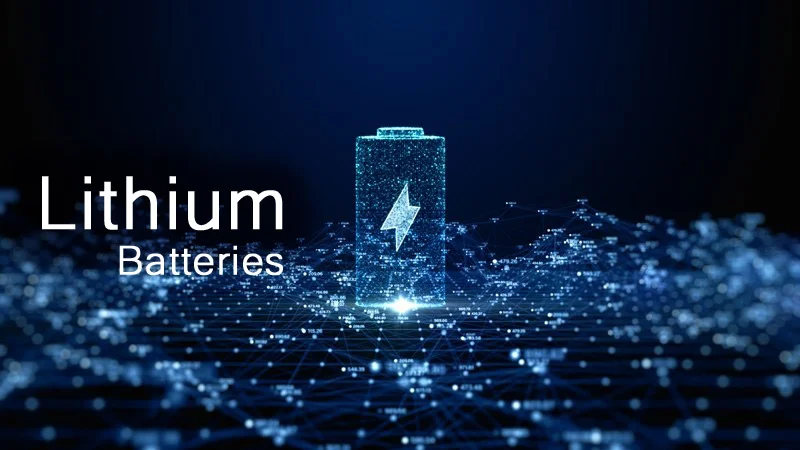Lithium Batteries for Solar Systems: What You Need to Know

Types of Lithium Batteries: Best for Solar Systems
Solar systems are an excellent way to harness renewable energy, but their efficiency heavily depends on the storage solution you choose. Among various battery technologies, lithium batteries have gained immense popularity for their superior performance, reliability, and longevity. In this article, we’ll explore the different types of lithium batteries, their pros and cons, and why they are the best choice for solar systems.
Why Choose Lithium Batt1eries for Solar Systems?
Lithium batteries offer several advantages over traditional lead-acid batteries. They have a higher energy density, longer lifespan, and faster charging capabilities. These features make them ideal for solar systems, where efficient and reliable energy storage is crucial. Additionally, lithium batteries are lightweight and require minimal maintenance, making them a cost-effective choice in the long run.
Types of Lithium Batteries for Solar Systems
There are several types of lithium batteries available, each with unique characteristics. Below are the most common types used in solar systems:
1. Lithium Iron Phosphate (LiFePO4)
LiFePO4 batteries are one of the most popular choices for solar systems due to their excellent safety profile, long lifespan, and thermal stability.
Key Benefits:
-
Long Lifespan: Can last up to 10 years or more with proper maintenance.
-
Thermal Stability: Resistant to overheating, making them safe for home solar systems.
-
High Efficiency: Minimal energy loss during charging and discharging cycles.
-
Low Maintenance: Requires little to no upkeep.
Ideal Use:
LiFePO4 batteries are best suited 4for residential and off-grid solar systems where safety and reliability are priorities.
2. Lithium Nickel Manganese Cobalt Oxide (NMC)
NMC batteries are known for their high energy density and versatility. They are commonly used in electric vehicles and large-scale solar projects.
Key Benefits:
-
High Energy Density: Stores more energy in a compact size.
-
Lightweight: Easier to transport and install.
-
Cost-Effective: Offers a balance between performance and price.
Ideal Use:
NMC batteries are suitable for commercial solar systems and portable solar setups requiring high energy output.
3. Lithium Titanate (LTO)
LTO batteries are known for their fast charging capabilities and extreme durability.
Key Benefits:
-
Fast Charging: Can charge rapidly without degrading.
-
Durability: High resistance to wear and tear, with a lifespan exceeding 15 years.
-
Wide Temperature Range: Operates efficiently in extreme temperatures.
Ideal Use:
LTO batteries are best for large-scale solar systems or installations in extreme climates.
4. Lithium Cobalt Oxide (LCO)
LCO batteries are less common in solar systems but are used in specific applications requiring compact energy storage.
Key Benefits:
-
Compact Size: Ideal for space-constrained setups.
-
High Energy Output: Provides significant power in small capacities.
Ideal Use:
LCO batteries are suitable for small solar applications or hybrid systems.
Factors to Consider When Choosing Lithium Batteries for Solar Systems
When selecting the right lithium battery for your solar system, consider the following factors:
- Capacity and Energy Needs: Determine your daily energy requirements to ensure the battery has enough capacity to store and supply energy efficiently.
- Lifespan and Durability: Look for batteries with a long cycle life, such as LiFePO4, to reduce replacement costs and maintenance.
- Temperature Resistance: Ensure the battery can operate within your local climate conditions without compromising performance.
- Cost and Budget: Compare the cost per cycle of different battery types to find the most cost-effective solution.
Conclusion
Lithium batteries are a game-changer for solar systems, offering superior performance, longevity, and safety. Among the various types, LiFePO4 batteries stand out as the best choice for residential solar systems due to their reliability and long lifespan. However, depending on your specific needs, NMC, LTO, or LCO batteries might also be suitable.
By choosing the right lithium battery, you can optimize the efficiency of your solar system, reduce maintenance costs, and ensure a steady supply of clean energy.
References:
- Battery University. “Lithium-based Batteries for Solar Systems.” BatteryUniversity.com.
- Solar Power World. “Best Batteries for Solar Systems in 2024.” SolarPowerWorld.com.
- Clean Energy Reviews. “Comparing LiFePO4 with Other Lithium Batteries.” CleanEnergyReviews.com.
- Renewable Energy Hub. “Understanding Lithium Batteries for Solar Storage.” RenewableEnergyHub.com.










